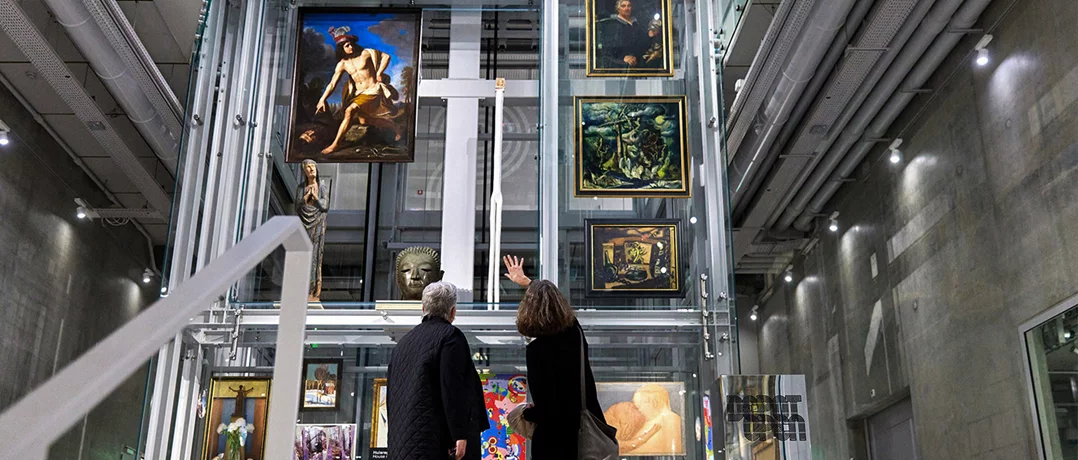The Beirut Art Film Festival, now in its 11th edition, invites the audience to experience the human side of the world once again through art, revolt, and the gentle perseverance of beauty.
Beirut Art Film Festival returns: For humanity, for beauty
Beirut Art Film Festival returns: For humanity, for beauty


This November, the Beirut Art Film Festival (BAFF) returns for its 11th edition, and it will not be a red-carpet event, but a statement instead. The event, characterized by the tagline “For Humanity,” brings together the film creators, the visual artists, and the public under one fundamental concept, which is that beauty, truth, and dignity are still the last areas of resistance.
At a time when screens overflow with noise and brutality, BAFF stands quietly apart. “The directors’ works are all searching for our vanishing humanity,” says the festival artistic director Alice Moghabgab. “It’s the common point between them, a call for the human being, for dignity, for beauty.”
From feature films and documentaries to student shorts, the selection celebrates the power of image and memory. “We are reaching a crucial moment,” Moghabgab adds. “Images today are often fake, empty, violent; they destroy rather than inspire. But there are still artists who remind us of what a human being can bring to this world, the beauty of our fragility, our resistance, and our freedom.”
This year’s program opens with an operatic adaptation of “Rigoletto,” a symbolic choice. “It’s not just an opera,” she explains. “It’s a transformed, adapted work that speaks about the abuse of power and human rights, proof that a hundred-year-old masterpiece can still question our present.”
Conversations, not just screenings
Beyond films, BAFF remains a space for discussion a forum where artists, students and thinkers gather to reflect on the image’s role in shaping a more conscious society. Panels explore the evolution of art in the region, from resistance to reconstruction. “It’s about how our region learned to look at itself differently,” Moghabgab says. “How art became a language of identity and transformation.”
In a country still navigating collapse, these moments of exchange matter. “These discussions are essential. We cannot stay passive. We must keep entertaining our freedom, our dignity.”
BAFF’s impact reaches far beyond its screenings. Every ticket sold supports the next generation of aspiring Lebanese filmmakers. “All the proceeds from ticket sales go to scholarships for film students at Saint Joseph University,” Moghabgab explains. “One hundred percent. It’s our way of investing in the future in new filmmakers, new thinkers.”
Beauty as resistance
For Moghabgab, art is not escapism it is a way to confront despair. “The more we have problems in this country, the more we search for beauty,” she says. “Because when you see beauty, you can also see lies, corruption, ugliness. Beauty reveals truth.”
Her conviction runs deep. “I don’t know if I’ll do it next year,” she admits. “Last year, we held it under the bombs. I moved the screenings from Ras al-Nabaa to another venue because the area was being shelled. But I refused to stop. I will never cancel. We cannot submit ourselves to imposed war.”
BAFF is not just a festival to her; it is a gesture of defiance, a reminder that Lebanon's pulse for creativity cannot be silenced.
In a desert country, this festival was a hub of beauty. It was resonating like a small miracle.
Even after eleven editions, that pulse remains steady. “We navigate in dangerous waters,” she says, “but always toward a better future.”


.webp)